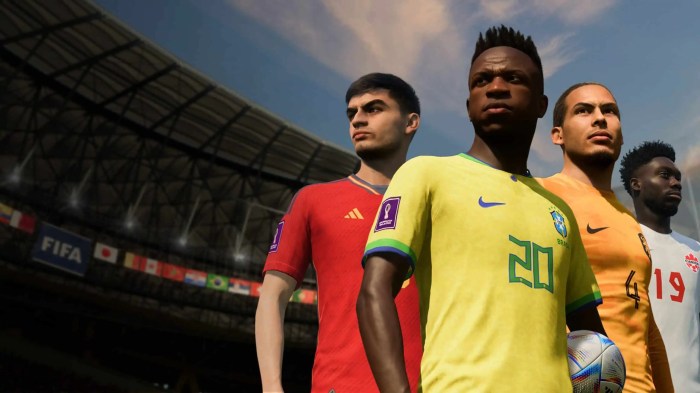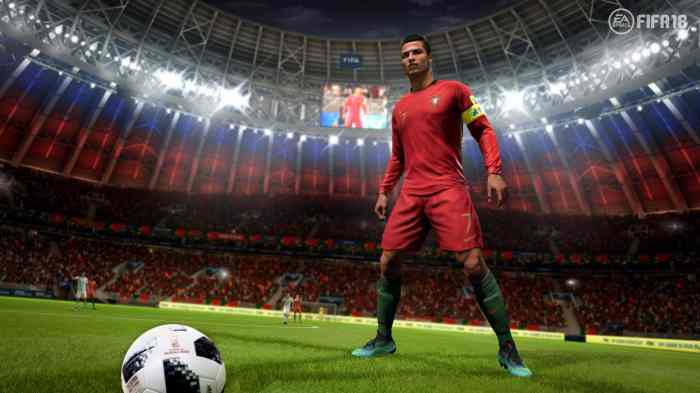What is FIFA meaning? The Fédération Internationale de Football Association (FIFA) is the international governing body of association football, futsal, and beach soccer. It is responsible for organizing major international competitions, including the FIFA World Cup, and promoting the development of the sport around the world.
Founded in 1904, FIFA has grown to become one of the most powerful and influential sports organizations in the world, with over 200 member associations representing countries and territories from every continent.
FIFA Overview
FIFA is the acronym for the Fédération Internationale de Football Association. It is the international governing body for football, beach soccer, and futsal. Its primary purpose is to promote and develop football worldwide.
FIFA’s objectives include:
- Organizing and promoting football competitions
- Developing the game of football globally
- Protecting the integrity of the game
- Promoting fair play and respect
- Promoting the social and educational benefits of football
History of FIFA

FIFA was founded on May 21, 1904, in Paris, France, by representatives from seven national football associations: Belgium, Denmark, France, the Netherlands, Spain, Sweden, and Switzerland. The organization’s first president was Robert Guérin of France.
In its early years, FIFA focused on organizing international matches and competitions. The first FIFA World Cup was held in Uruguay in 1930, and has been held every four years since then, except during World War II.
FIFA has grown significantly over the years, and now has over 200 member associations. It is responsible for organizing a wide range of competitions, including the FIFA World Cup, the FIFA Women’s World Cup, and the FIFA Confederations Cup.
Structure of FIFA

FIFA is a hierarchical organization, with the FIFA Congress at the top. The FIFA Congress is made up of representatives from all of FIFA’s member associations. The FIFA Congress meets annually to elect the FIFA President and the members of the FIFA Council.
The FIFA Council is the executive body of FIFA. It is responsible for making decisions on behalf of the FIFA Congress. The FIFA Council is made up of the FIFA President, the FIFA Vice Presidents, and the members of the FIFA Standing Committees.
The FIFA Standing Committees are responsible for specific areas of FIFA’s work, such as finance, development, and competitions.
FIFA Competitions
FIFA organizes a wide range of competitions, including the FIFA World Cup, the FIFA Women’s World Cup, and the FIFA Confederations Cup.
The FIFA World Cup is the most prestigious football competition in the world. It is held every four years, and brings together the best national teams from around the world.
The FIFA Women’s World Cup is the most prestigious football competition for women. It is held every four years, and brings together the best women’s national teams from around the world.
The FIFA Confederations Cup is a tournament that brings together the winners of the six continental confederations, as well as the host nation. It is held every four years, one year before the FIFA World Cup.
FIFA Development Programs: What Is Fifa Meaning

FIFA is committed to developing football worldwide. It has a number of programs in place to help develop football in developing countries.
These programs include:
- The FIFA Goal Project
- The FIFA Women’s Football Development Programme
- The FIFA Youth Football Development Programme
- The FIFA Futsal Development Programme
These programs provide funding and support to help develop football infrastructure, train coaches, and develop youth players.
FIFA and Social Responsibility

FIFA is committed to social responsibility and sustainability. It has a number of initiatives in place to promote gender equality, anti-discrimination, and environmental protection.
These initiatives include:
- The FIFA Women’s Football Development Programme
- The FIFA Anti-Discrimination Programme
- The FIFA Green Goal Programme
These initiatives help to promote gender equality, combat discrimination, and protect the environment.
Controversies and Challenges
FIFA has faced a number of controversies and challenges throughout its history. These include:
- Allegations of corruption
- Financial scandals
- Human rights abuses
FIFA has taken steps to address these controversies and challenges. It has implemented a number of reforms, including:
- Introducing term limits for FIFA officials
- Increasing transparency in FIFA’s financial dealings
- Creating an independent ethics committee
These reforms have helped to improve FIFA’s reputation and restore confidence in the organization.
FIFA’s Future
FIFA is facing a number of challenges in the future. These include:
- The rise of new football leagues and competitions
- The increasing commercialization of football
- The need to address climate change
FIFA is working to address these challenges and ensure that it remains the leading organization in world football.
Helpful Answers
What does FIFA stand for?
FIFA stands for Fédération Internationale de Football Association, which is French for International Federation of Association Football.
What is the purpose of FIFA?
FIFA is responsible for organizing major international football competitions, such as the FIFA World Cup, and promoting the development of the sport around the world.
How many member associations does FIFA have?
FIFA has over 200 member associations representing countries and territories from every continent.
What is the FIFA World Cup?
The FIFA World Cup is the most prestigious football competition in the world, and is held every four years.
